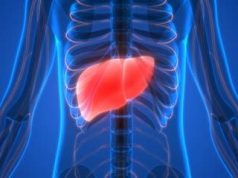Highest risk seen for those who used to drink, but had stopped
TUESDAY, Jan. 20, 2015 (HealthDay News) — Having a drink each day might help lower a middle-aged person’s odds for heart failure, according to a new study published online Jan. 20 in the European Heart Journal.
Scott Solomon, M.D., a professor of medicine at Harvard Medical School in Boston and senior physician at Brigham and Women’s Hospital in Boston, and colleagues defined one drink as equaling 14 grams of alcohol — the equivalent of a small glass of wine, about a half-pint of beer, and somewhat less than a shot of spirits, such as whiskey or vodka. Solomon’s team then tracked drinking patterns and heart failure rates for 14,629 men and women. All were between the ages of 45 and 64 when they first joined the study in the late 1980s. The researchers followed the participants for the next 25 years, asking them periodically about the type and quantity of alcohol they routinely consumed. Over time, 1,271 men and 1,237 women developed heart failure.
Compared with heavy drinkers or teetotalers, the lowest risk for heart failure was seen among moderate drinkers who consumed up to seven drinks per week. The investigators suggest that men in their 40s, 50s, and 60s who drink as much as seven comparably sized glasses of wine, beer, and/or spirits per week will see their risk for heart failure drop by 20 percent. For women, the associated drop in risk amounted to 16 percent.
The highest risk was for those who used to drink to some degree, but had stopped consuming alcohol during the study period. Men and women in this group were found to have an 18 percent higher risk for heart failure on average when compared with participants who had never touched alcohol at all during the study period. On the other end of the scale, heavy drinkers — those who consumed 14 or more drinks per week — did not appear to face any more or less of a risk for heart failure than those who never drank at all. However, the study authors stressed that this finding may have been skewed by the relatively small number of heavy-drinking participants.
Full Text (subscription or payment may be required)
Copyright © 2015 HealthDay. All rights reserved.








